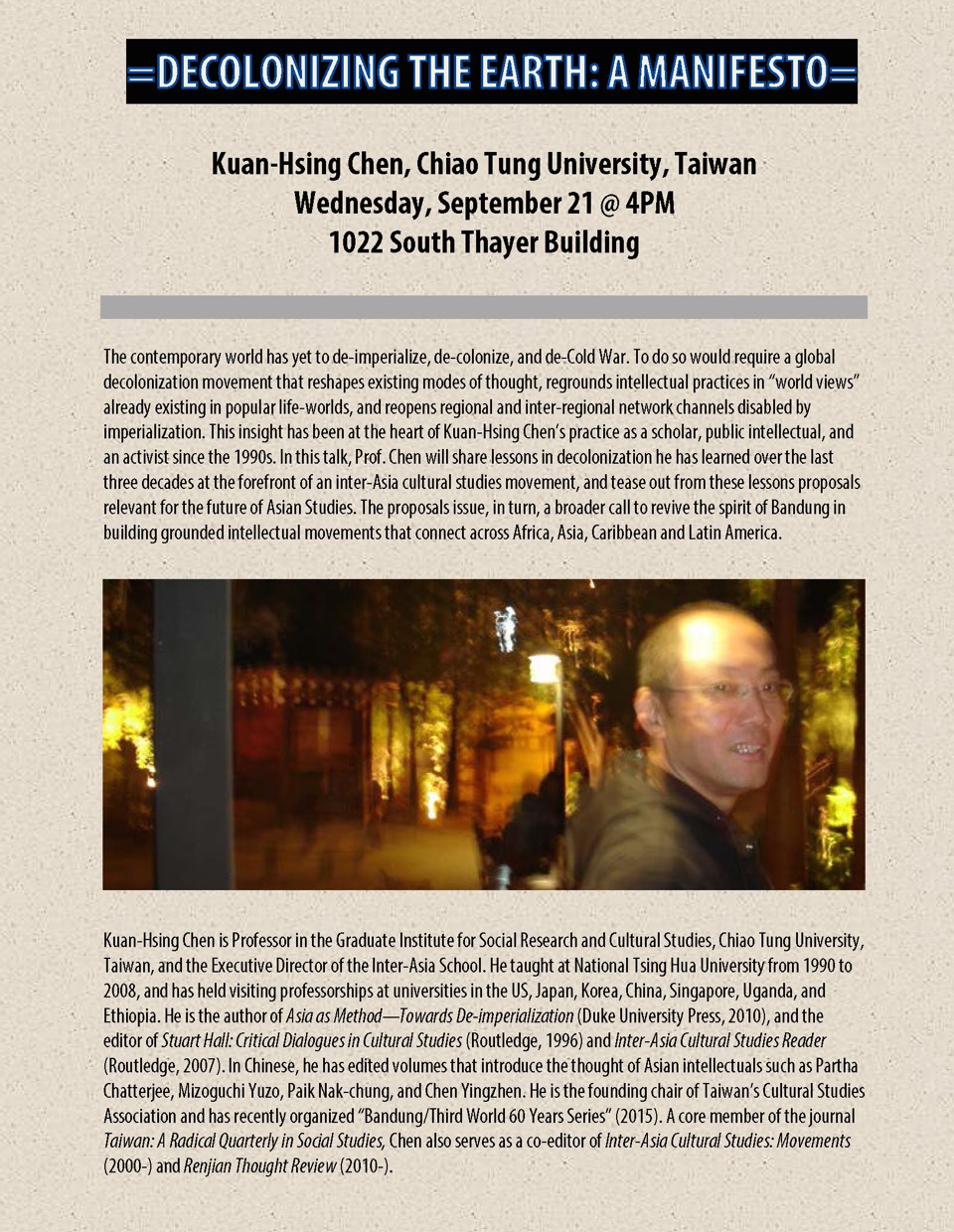EC - 12/7 Talk on TPP
12/07/16 07:28
Japan-US Leadership in Asia-Pacific:
Making a New Trade Architecture in the Region
Yorizumi Watanabe
Professor, Keio University
Wednesday, December 7, 2016
4:30-6:00 pm
Room 1636 School of Social Work Building
This lecture will be followed by a mini-reception. Both are free and open to the public.
Join Keio University Professor, Dr. Yorizumi Watanabe, for a special talk on Japan-U.S. leadership and its influence on trade relations in the Asia-Pacific region. Professor Watanabe will discuss the current global challenges and regional uncertainties facing Japan while exploring how the U.S. and Japan can jointly address these important issues. He will also outline the strategic importance of Trans-Pacific Partnership (TPP) and its role as a “security pact” for economic relations throughout the region. The significance of increasing coherence in trade between the U.S. and Japan will also be addressed.
Professor Watanabe’s distinguished career has featured significant engagement in high level trade negotiations and several appointments in Japan’s Foreign Service, specializing in international trade policy issues. Since 2005, he has been working as a professor of International Political Economy and Trade Policy at Keio University in Tokyo.
Cosponsored by the Consulate General of Japan in Detroit.
Making a New Trade Architecture in the Region
Yorizumi Watanabe
Professor, Keio University
Wednesday, December 7, 2016
4:30-6:00 pm
Room 1636 School of Social Work Building
This lecture will be followed by a mini-reception. Both are free and open to the public.
Join Keio University Professor, Dr. Yorizumi Watanabe, for a special talk on Japan-U.S. leadership and its influence on trade relations in the Asia-Pacific region. Professor Watanabe will discuss the current global challenges and regional uncertainties facing Japan while exploring how the U.S. and Japan can jointly address these important issues. He will also outline the strategic importance of Trans-Pacific Partnership (TPP) and its role as a “security pact” for economic relations throughout the region. The significance of increasing coherence in trade between the U.S. and Japan will also be addressed.
Professor Watanabe’s distinguished career has featured significant engagement in high level trade negotiations and several appointments in Japan’s Foreign Service, specializing in international trade policy issues. Since 2005, he has been working as a professor of International Political Economy and Trade Policy at Keio University in Tokyo.
Cosponsored by the Consulate General of Japan in Detroit.
Yellow Magic Orchestra
11/30/16 16:07
From Isabelle:
Our reading on Japanese jazz and Japanese people's fascination in traditionally black american music reminded me of this video! It's of a really awesome chip tune/ synth pop band from Japan that rose to popularity during the 70s and 80s called Yellow Magic Orchestra or YMO (whom you may have heard of probably??) that played on Soul Train in1980. The song they play was actually one of the top R&B hits of the time and appeared on the American Billboard 200. It certainly stood out on R&B charts amongst the list of primarily black American artists. My friend and I watched a lot of old Soul Train in high school, and this clip always fascinated me because they were unlike a lot of the groups that were featured on that show, both ethnically and stylistically. You can certainly heard of the funk/ r&b influences they took from American music while at the same time integrating an extremely unique sound. The song they play jams pretty hard so if you haven't seen this video get ready:
Our reading on Japanese jazz and Japanese people's fascination in traditionally black american music reminded me of this video! It's of a really awesome chip tune/ synth pop band from Japan that rose to popularity during the 70s and 80s called Yellow Magic Orchestra or YMO (whom you may have heard of probably??) that played on Soul Train in1980. The song they play was actually one of the top R&B hits of the time and appeared on the American Billboard 200. It certainly stood out on R&B charts amongst the list of primarily black American artists. My friend and I watched a lot of old Soul Train in high school, and this clip always fascinated me because they were unlike a lot of the groups that were featured on that show, both ethnically and stylistically. You can certainly heard of the funk/ r&b influences they took from American music while at the same time integrating an extremely unique sound. The song they play jams pretty hard so if you haven't seen this video get ready:
EC - Agents of Change 11/3
10/29/16 11:42
I’m happy to give extra credit to any student who attends this film screening and uploads a reflection to Canvas.
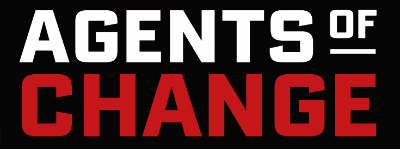
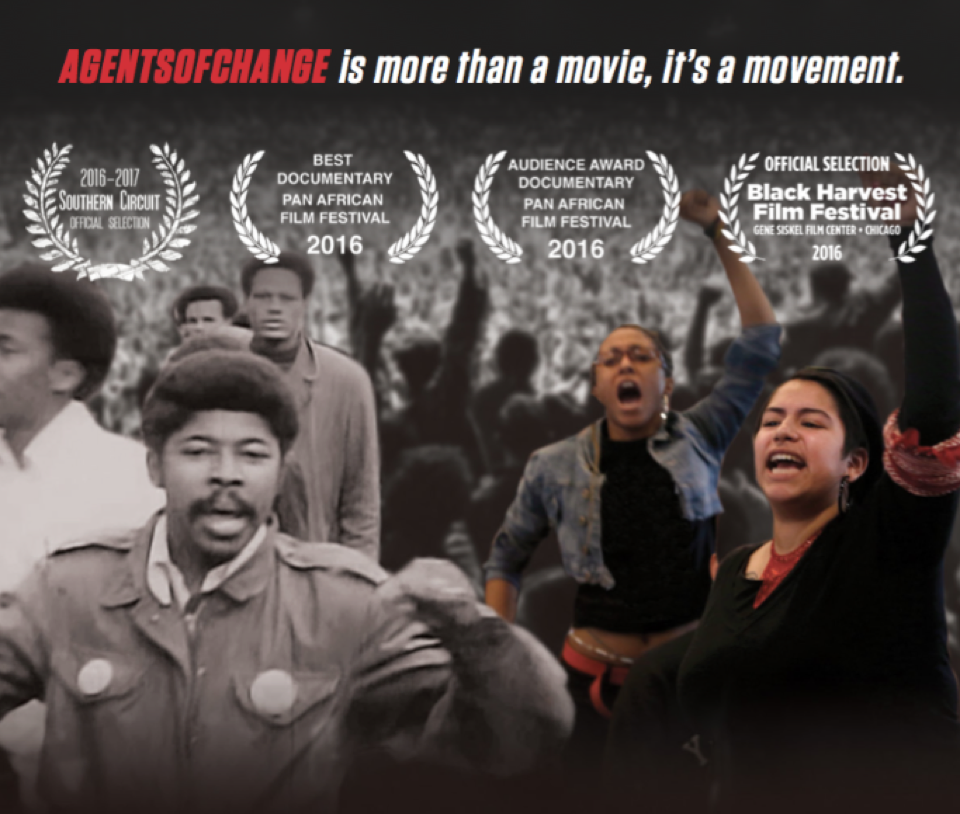
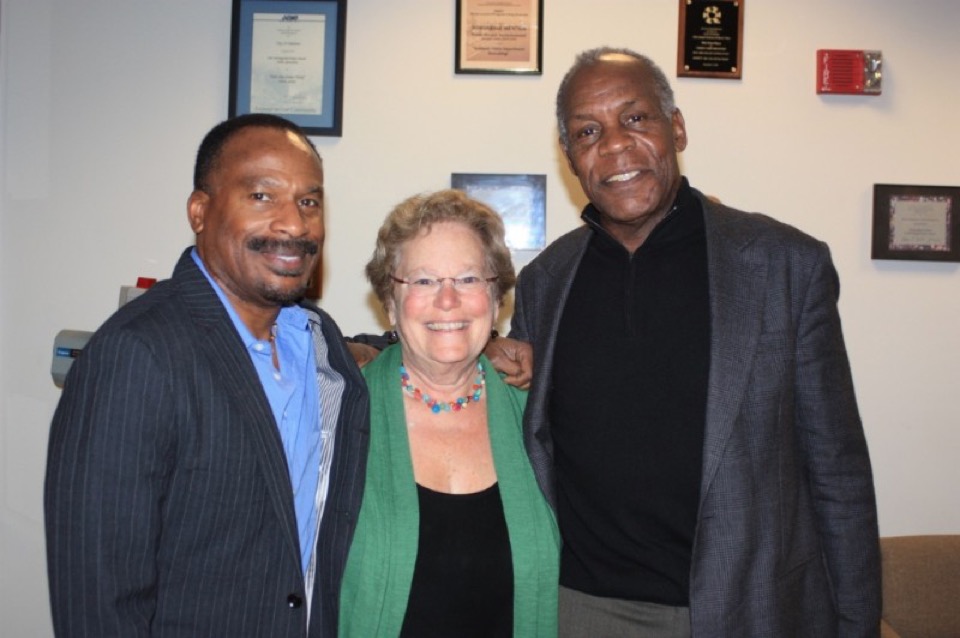
The Panic Around D&D
10/27/16 18:06
Here’s the great short documentary I mentioned in class this morning. I’m happy to give extra credit to any student who watches it and writes a reflection.
EC - Japanese Cultural Properties
10/20/16 04:27
Japan's Policy for Protecting Cultural Properties: History, Current State and Challenges
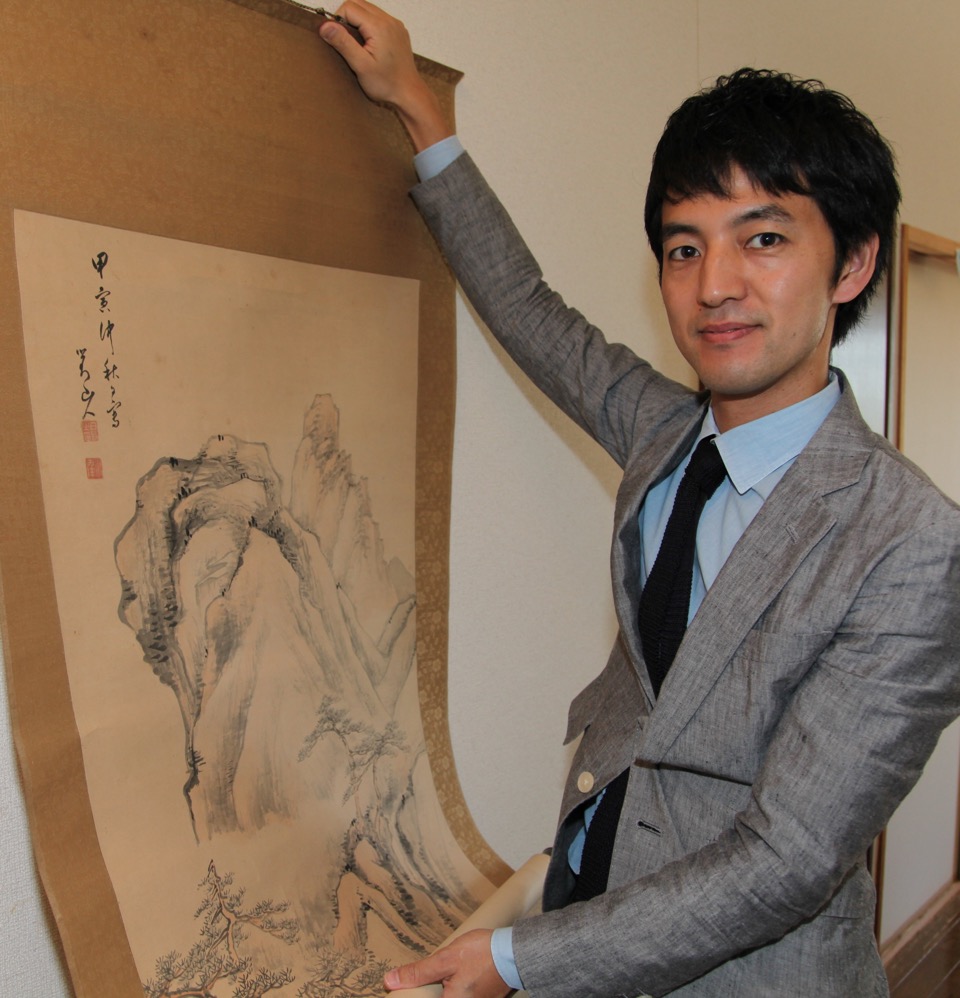
Tadahito Tsutsui
Technical Official, Fine Arts Division, Agency for Cultural Affairs, Japan
Thursday, October 20, 2016
12:10-1:30 pm
Room 1636 School of Social Work Building
Based on knowledge acquired through his years of service in the Kyoto Prefectural Board of Education and the Agency for Cultural Affairs - Japan, Tsutsui will discuss the current state of the system for protecting several types of cultural properties in Japan. He will also explain the history and challenges of Japan's policy for protecting them, in comparison with that of the U.S. and other countries.
Tadahito Tsutsui began his career in the Kyoto Prefectural Board of Education in 2007. He joined the Agency for Cultural Affairs of the Government of Japan in Tokyo on April 1, 2011. As a researcher, he studies about old Japanese paintings, especially the 17th century painter Iwasa Matabei, who is called "the Founder of Ukiyo-e."

Tadahito Tsutsui
Technical Official, Fine Arts Division, Agency for Cultural Affairs, Japan
Thursday, October 20, 2016
12:10-1:30 pm
Room 1636 School of Social Work Building
Based on knowledge acquired through his years of service in the Kyoto Prefectural Board of Education and the Agency for Cultural Affairs - Japan, Tsutsui will discuss the current state of the system for protecting several types of cultural properties in Japan. He will also explain the history and challenges of Japan's policy for protecting them, in comparison with that of the U.S. and other countries.
Tadahito Tsutsui began his career in the Kyoto Prefectural Board of Education in 2007. He joined the Agency for Cultural Affairs of the Government of Japan in Tokyo on April 1, 2011. As a researcher, he studies about old Japanese paintings, especially the 17th century painter Iwasa Matabei, who is called "the Founder of Ukiyo-e."
EC - Agents of Change film 11/3
10/08/16 10:49
Film Screening and Panel Discussion
Thursday, Nov. 3
4:00-6:00 p.m.
5511 Haven Hall
Film Synopsis:
From the well-publicized events at San Francisco State in 1968 to the image of black students with guns emerging from the takeover of the student union at Cornell University in April, 1969, the struggle for a more relevant and meaningful education, including demands for black and ethnic studies programs, became a clarion call across the country in the late 1960's. Through the stories of these young men and women who were at the forefront of these efforts, Agents of Change examines the untold story of the racial conditions on college campuses and in the country that led to these protests. The film’s characters were caught at the crossroads of the civil rights, black power, and anti-Vietnam war movements at a pivotal time in America’s history. Today, over 45 years later, many of the same demands are surfacing in campus protests across the country, revealing how much work remains to be done.
Panel Discussion:
The panel discussion following the film will include students, a faculty moderator, and the Co-Producers and Co-Directors of Agents of Change: Frank R. Dawson and Abby Ginzberg.
This screening is sponsored by: The Department of Afroamerican and African Studies, the Office of the Associate Dean for Undergraduate Education, the Center for Research on Learning and Teaching, the Institute for the Humanities, and the Department of English.
Thursday, Nov. 3
4:00-6:00 p.m.
5511 Haven Hall
Film Synopsis:
From the well-publicized events at San Francisco State in 1968 to the image of black students with guns emerging from the takeover of the student union at Cornell University in April, 1969, the struggle for a more relevant and meaningful education, including demands for black and ethnic studies programs, became a clarion call across the country in the late 1960's. Through the stories of these young men and women who were at the forefront of these efforts, Agents of Change examines the untold story of the racial conditions on college campuses and in the country that led to these protests. The film’s characters were caught at the crossroads of the civil rights, black power, and anti-Vietnam war movements at a pivotal time in America’s history. Today, over 45 years later, many of the same demands are surfacing in campus protests across the country, revealing how much work remains to be done.
Panel Discussion:
The panel discussion following the film will include students, a faculty moderator, and the Co-Producers and Co-Directors of Agents of Change: Frank R. Dawson and Abby Ginzberg.
This screening is sponsored by: The Department of Afroamerican and African Studies, the Office of the Associate Dean for Undergraduate Education, the Center for Research on Learning and Teaching, the Institute for the Humanities, and the Department of English.
EC - Japanese Film talk 10/13
10/08/16 10:38
Image Music Text: The Language of Ozu's Late Silent Films
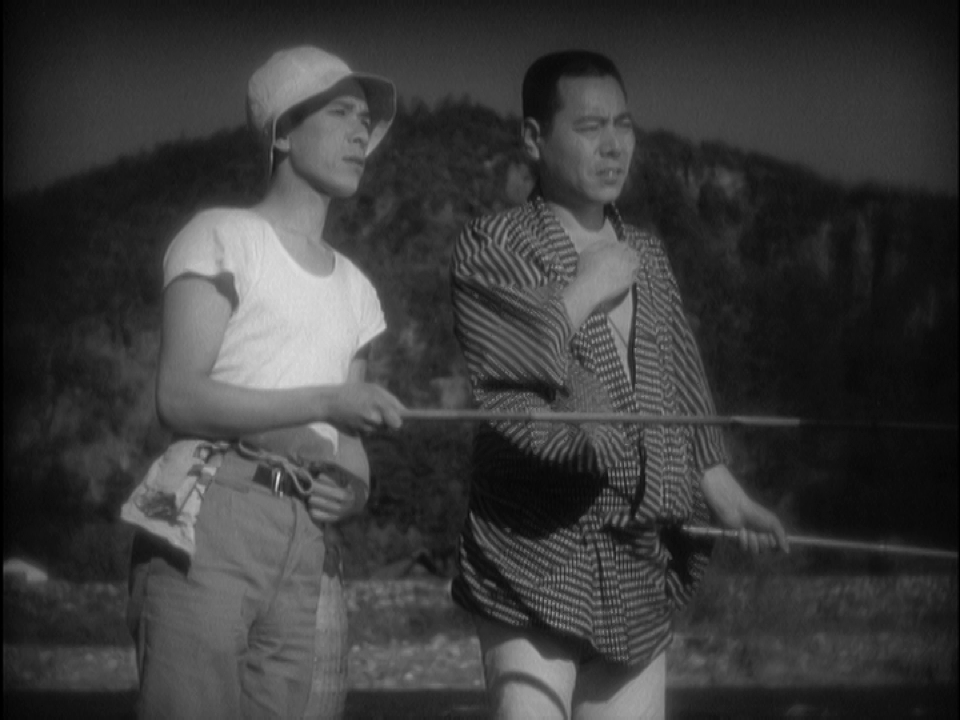
Michael Raine
Assistant Professor, Film Studies, Western University, Canada
Thursday, October 13, 2016
12:10-1:30 pm
Room 1636 School of Social Work Building
This presentation analyzes material differences in Ozu Yasujiro's late silent films in order to reveal the different aesthetic projects that they embodied, within the overarching mode of the “Kamata-style” melodrama. Ozu's consciousness of form extends beyond camera level and the construction of space recognized by prior authors to the signifying power of the intertitle as a form of “visual speech.” In the presentation, Raine will provide an historical context for Ozu’s engagement with the intertitle and then survey his changing usage, in particular in the late silent films from Woman of Tokyo (Tokyo no onna, 1933) to College is a Nice Place (Daigaku yoi toko, 1936, lost). He argues that we can tease out a succession of aesthetic projects in these films: first, an exploration of the properties of intertitle syntax and frequency in the films of 1933 and then a heretofore unrecognized exploitation of the “sound version” (films with music and sometimes sound effects and speech, but no synchronized dialog) to silence the bathos of benshi narration and create subtle, synaesthetic effects that we might liken to visual repartee.
Michael Raine is an Assistant Professor at the film studies department of Western University, Canada. He received his Ph.D. in film studies from the University of Iowa and has taught Japanese Cinema and World Cinema at Yale University and the University of Chicago. He has published on a wide range of topics in Japanese cinema and has subtitled approximately 60 films for classes, commercial release, and the Udine film festival. His research interests lie in the transition to sound in Japanese cinema, wartime image culture, and the Japanese new wave.

Michael Raine
Assistant Professor, Film Studies, Western University, Canada
Thursday, October 13, 2016
12:10-1:30 pm
Room 1636 School of Social Work Building
This presentation analyzes material differences in Ozu Yasujiro's late silent films in order to reveal the different aesthetic projects that they embodied, within the overarching mode of the “Kamata-style” melodrama. Ozu's consciousness of form extends beyond camera level and the construction of space recognized by prior authors to the signifying power of the intertitle as a form of “visual speech.” In the presentation, Raine will provide an historical context for Ozu’s engagement with the intertitle and then survey his changing usage, in particular in the late silent films from Woman of Tokyo (Tokyo no onna, 1933) to College is a Nice Place (Daigaku yoi toko, 1936, lost). He argues that we can tease out a succession of aesthetic projects in these films: first, an exploration of the properties of intertitle syntax and frequency in the films of 1933 and then a heretofore unrecognized exploitation of the “sound version” (films with music and sometimes sound effects and speech, but no synchronized dialog) to silence the bathos of benshi narration and create subtle, synaesthetic effects that we might liken to visual repartee.
Michael Raine is an Assistant Professor at the film studies department of Western University, Canada. He received his Ph.D. in film studies from the University of Iowa and has taught Japanese Cinema and World Cinema at Yale University and the University of Chicago. He has published on a wide range of topics in Japanese cinema and has subtitled approximately 60 films for classes, commercial release, and the Udine film festival. His research interests lie in the transition to sound in Japanese cinema, wartime image culture, and the Japanese new wave.
Call for Applications - Center for Japanese Studies Undergraduate Advisory Board
10/03/16 19:15
Looking to connect with U-M faculty and students who specialize in Japan Studies? Interested in having a say in U-M's biggest Japan-related events and programs? Then apply for a seat on the CJS Undergraduate Advisory Board!
We welcome undergraduate students of all years, majors, and interests. No Japanese language background is required. Come be a part of the country's oldest Japan Studies institution!
Follow this link to apply (application closes Oct 30th).
For more information, please contact Brad Hammond at bradlyh@umich.edu.
We welcome undergraduate students of all years, majors, and interests. No Japanese language background is required. Come be a part of the country's oldest Japan Studies institution!
Follow this link to apply (application closes Oct 30th).
For more information, please contact Brad Hammond at bradlyh@umich.edu.
EC - Japanese Film talk 10/6
10/01/16 09:07
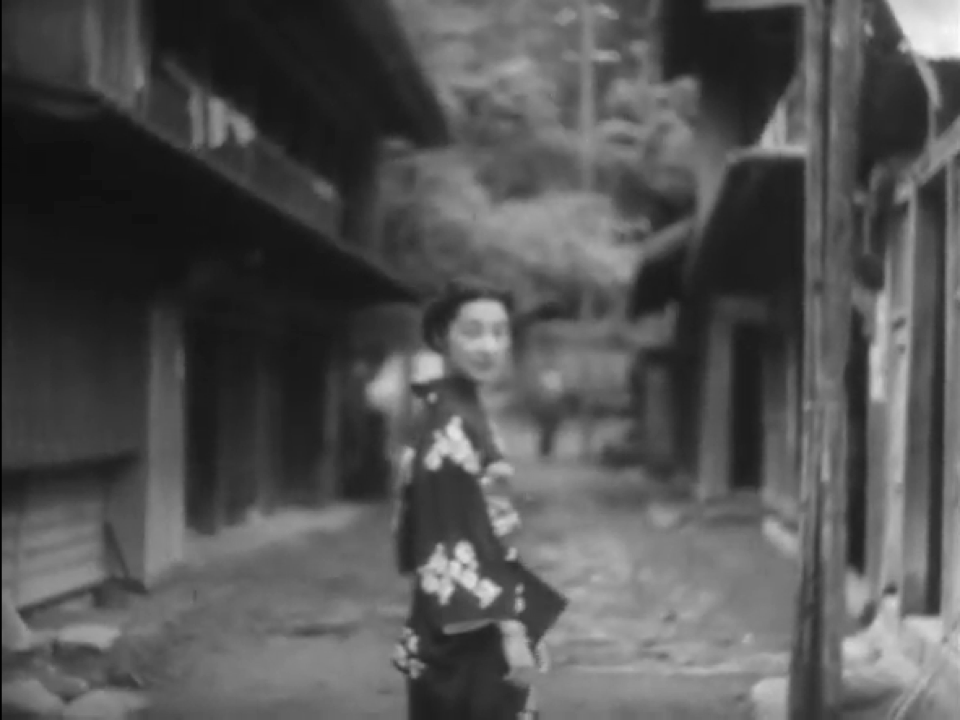
From Security to Refuge: Visibility and Vulnerability in Japanese Cinema
Philip Kaffen
Assistant Professor and Faculty Fellow of East Asian Studies, New York University
Thursday, October 6, 2016
12:10-1:30 pm
Room 1636 School of Social Work Building
This talk aims to interrogate the relationship between cinema and security in Japanese cinema. My question is whether it is possible for cinema to help locate forms of refuge today that are distinct from security. Drawing on several examples of moving image media in Japan, I will argue that one of the key components of locating refuge involves a shift of emphasis from a politics of visibility to one of vulnerability. Visibility is central to the politics of security in all its modalities. While amplifying fear, security works to obscure any kind of care (indeed, etymologically, the term security—securitas—refers to the absence of care). Vulnerability, on the other hand, opens possibilities for care foreclosed by the fear and aggression of security. Such a distinction raises multiple questions. How does an image that emphasizes visibility differ from one that emphasizes vulnerability? How does the relationship between visibility and vulnerability intersect with that between image and narrative (or other non-visual elements), or specific modes, such as documentary, or animation?
Phil Kaffen’s research and teaching interests revolve around the role of the image in modern societies, from intersections of art and technology in optical media to theoretical reflections on imagination and representation to the politics of surveillance and security. His primary research field is Japan. He has published essays on bodies and urban space in documentary and fiction film, and on violence in cinema during the 1970s. He is currently working on a book project tentatively titled: Immediacy and Refuge: Rethinking the Place of Cinema in Japan.
EC - Metroimperial Intimacies 10/6
09/30/16 14:22
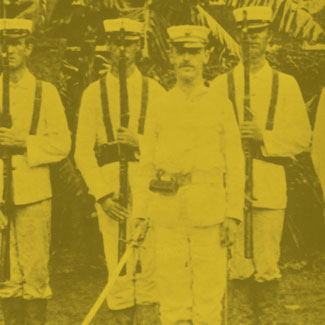
| GENDER: NEW WORKS, NEW QUESTIONS |
| Victor Mendoza (English, Women's Studies) |
| Deirdre de la Cruz (Asian Languages and Cultures, History) |
| Maria Cotera (American Culture, Women's Studies) |
EC - Campaign film
09/23/16 15:21
As I mentioned earlier, the Toyota Visiting Professor at Michigan this year is a wonderful documentary film maker who is focused on Japan. In addition to the opportunity to see his film “Mental” on 9/23, I have arranged for streaming of his earlier film “Election.” The trailer is below and you can find the full film on Canvas / Media Gallery. If you would like extra credit, please watch the film and respond to it as directed on the “Extra Credit” page of this website.
Dancing Samurai
09/20/16 13:31
The clip I wasn’t able to show you because of our technical difficulties this morning.
Japanese Democracy - "Campagin" Documentary Film
09/09/16 11:45
I am interested to see Mr. Kazuhiro Soda’s newest film, Mental, because I enjoyed his earlier film, Campaign, so much. It’s a documentary capturing the efforts of a man running for the national Diet. If any student is interested in watching it, let me know and I’ll add it to our films page.
Extra Credit - "Mental" Film Screening
09/09/16 11:44
Another fantastic opportunity for extra credit!

7-10pm
FREE Film Screening with Kazuhiro Soda's introduction and post-film Q&A session
Michigan Theater
603 East Liberty Avenue, Ann Arbor
10-11pm
Mini Reception
Slurping Turtle
608 East Liberty Street, Ann Arbor
Kazuhiro Soda is an award-winning Japanese filmmaker based in New York. His films have been screened at such events as Berlin International Film Festival, Venice International Film Festival, Locarno International Film Festival, Busan International Film Festival, Hong Kong International Film Festival, MoMA Documentary Fortnight, Cinema du Reel, and Visions du Reel, among others. He is known for his observational method and style of documentary filmmaking in which he strictly prohibits himself from doing pre-shoot research or meeting in order to minimize preconceptions and to make unexpected discoveries while filming. He is also the author of seven books published in Japan. He received his BA in Religious Studies from the University of Tokyo and BFA in Film Directing from the School of Visual Arts in New York.

7-10pm
FREE Film Screening with Kazuhiro Soda's introduction and post-film Q&A session
Michigan Theater
603 East Liberty Avenue, Ann Arbor
10-11pm
Mini Reception
Slurping Turtle
608 East Liberty Street, Ann Arbor
Kazuhiro Soda is an award-winning Japanese filmmaker based in New York. His films have been screened at such events as Berlin International Film Festival, Venice International Film Festival, Locarno International Film Festival, Busan International Film Festival, Hong Kong International Film Festival, MoMA Documentary Fortnight, Cinema du Reel, and Visions du Reel, among others. He is known for his observational method and style of documentary filmmaking in which he strictly prohibits himself from doing pre-shoot research or meeting in order to minimize preconceptions and to make unexpected discoveries while filming. He is also the author of seven books published in Japan. He received his BA in Religious Studies from the University of Tokyo and BFA in Film Directing from the School of Visual Arts in New York.
Extra Credit Opportunity 9/9 - Community Organization Presentation
09/06/16 06:11
This Friday, Sept 9th at 7:00 pm in SSWB 1636, CJS and U-M Kinyokai are excited to host a special lecture by Takayuki Furuyama, Founder/CEO of ITNAV Ishinomaki. Pizza and beverages will be served, so be sure to come hungry! Please also note that this lecture will be given in Japanese without interpretation.
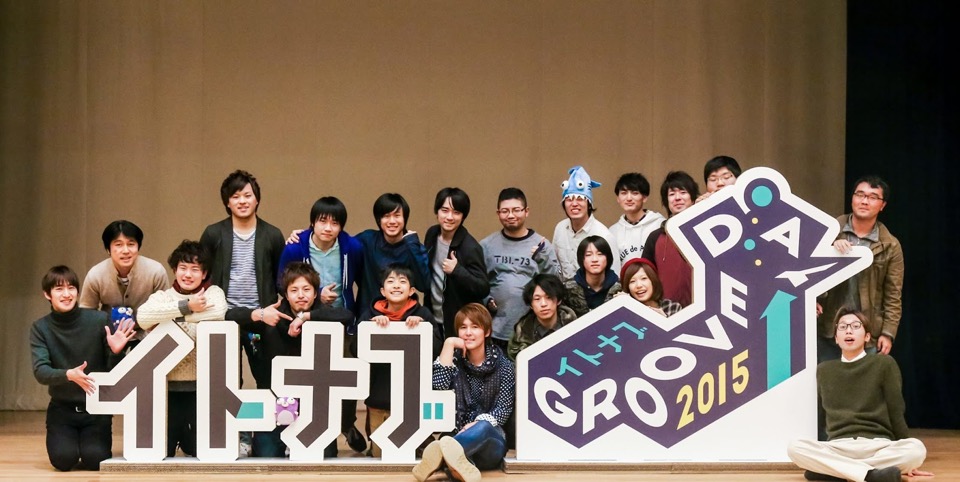
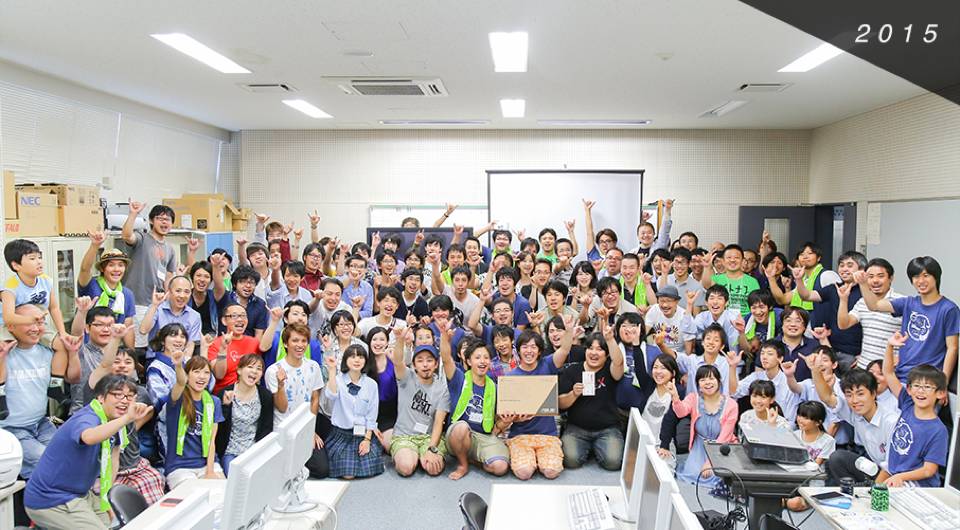
Founded in the aftermath of the 2011 Great East Japan earthquake and tsunami, ITNAV Ishinomaki is a grassroots organization based in Ishinomaki City that promotes K-12 IT education through community workshops, joint programs with local high schools, and hackathons.
Takayuki, an Ishinomaki-native who was based in Tokyo at the time of the disaster, moved back to Ishinomaki after the tsunami and founded ITNAV with the goal of training 1,000 IT engineers there by 2021 (the 10th anniversary of the disaster). For more info, please see this promotional video.
If interested in attending, please send me your RSVP by this Thursday, Sept 8th. (RSVPs are purely for planning purposes, so please feel free to attend even if you cannot RSVP by Thursday.) Please RSVP to bradlyh@umich.edu


Founded in the aftermath of the 2011 Great East Japan earthquake and tsunami, ITNAV Ishinomaki is a grassroots organization based in Ishinomaki City that promotes K-12 IT education through community workshops, joint programs with local high schools, and hackathons.
Takayuki, an Ishinomaki-native who was based in Tokyo at the time of the disaster, moved back to Ishinomaki after the tsunami and founded ITNAV with the goal of training 1,000 IT engineers there by 2021 (the 10th anniversary of the disaster). For more info, please see this promotional video.
If interested in attending, please send me your RSVP by this Thursday, Sept 8th. (RSVPs are purely for planning purposes, so please feel free to attend even if you cannot RSVP by Thursday.) Please RSVP to bradlyh@umich.edu
Policy on E-books
09/04/16 07:59
Do you know what it feels (and sounds) like to talk on the phone with someone who is watching tv or doing something else? That’s the feeling I’m trying to banish from our classroom. Although I know that people’s minds always wander - and that can be a wonderful thing! - I don’t want our preciously few hours together to have to compete with whatever’s happening on facebook, snapchat, or whatever app the cool kids are into these days.
Given my sense of the rewards for making our class free of digital technologies, a student has written me asking if they could buy and read e-books for the course.
I am trying to avoid a situation in which students are more absorbed in their technology than the conversation or their own thoughts (about the class). If you can have an e-book in front of you and not be at all disassociated from the class, you are allowed to use it. However, please know that if I have to ask you to stop messing with whatever technology is near you, I will ask you not to bring it back. Therefore if you think you might have a hard time not using the e-book for anything other than looking up a quote or following along with someone else’s point, I recommend you buy paperback books.
Also, please remind yourself that our phones, especially, are now literally being designed to make you never want to let it go, so you might feel some pangs of discomfort or confusion.

Given my sense of the rewards for making our class free of digital technologies, a student has written me asking if they could buy and read e-books for the course.
I am trying to avoid a situation in which students are more absorbed in their technology than the conversation or their own thoughts (about the class). If you can have an e-book in front of you and not be at all disassociated from the class, you are allowed to use it. However, please know that if I have to ask you to stop messing with whatever technology is near you, I will ask you not to bring it back. Therefore if you think you might have a hard time not using the e-book for anything other than looking up a quote or following along with someone else’s point, I recommend you buy paperback books.
Also, please remind yourself that our phones, especially, are now literally being designed to make you never want to let it go, so you might feel some pangs of discomfort or confusion.

Extra Credit Opportunity - Film Screening
09/01/16 19:33
In our first week of classes, the Center for Japanese Studies is co-sponsoring screenings of a film titled Umimachi diary in Japanese and Our Little Sister in English. (Not the best English title, huh?) It is based on a popular manga.
I will be happy to give extra credit to any student who watches the film and writes a short reflection on it. As described here, that reflection is due one week after you see the film to Canvas.
More information - including ticket prices! - is here.
I will be happy to give extra credit to any student who watches the film and writes a short reflection on it. As described here, that reflection is due one week after you see the film to Canvas.
More information - including ticket prices! - is here.
Extra Credit Opportunity 9/16 - Sharing Feedback with CJS
08/30/16 14:37
I’ll be happy to give extra credit to students who participate in a small discussion group with representatives from our wonderful Center for Japanese Studies. As they redesign some graphics and how they present materials to members of the University of Michigan community, they would like to get thoughts and feedback from current students.
Therefore, CJS is looking for ten students who would be willing to meet and share their thoughts on Friday, September 16 from 1-2pm. I will be happy to give an extra credit point to any students who are able to participate. Because the group must be no more than 10 students, please RSVP to me if you want to participate.
No preparation is required and for this Extra Credit Opportunity, unlike the others over the semester, you do not need to write a reflection essay to get credit.
Therefore, CJS is looking for ten students who would be willing to meet and share their thoughts on Friday, September 16 from 1-2pm. I will be happy to give an extra credit point to any students who are able to participate. Because the group must be no more than 10 students, please RSVP to me if you want to participate.
No preparation is required and for this Extra Credit Opportunity, unlike the others over the semester, you do not need to write a reflection essay to get credit.
First Extra Credit Opportunity 9/8 - Consul General Wada of Japan
08/30/16 14:09
Michigan’s wonderful Center for Japanese Studies hosts a regular lunch time talk series. The presentations are 12 noon until 1:30 on Thursdays in Room 1636 of the School of Social Work Building.
On Thursday, September 8, the first talk of the semester will be from the Consul-General of Japan, Mr. Mitsuhiro Wada. He’ll be speaking on: US-Japan Relations: An Important Partnership in a Changing Asia-Pacific Region.
I’m happy to give extra credit to any student who is able to attend the talk and write a reflection on it, as described here. The reflection essay is due by noon on September 15, uploaded to Canvas.
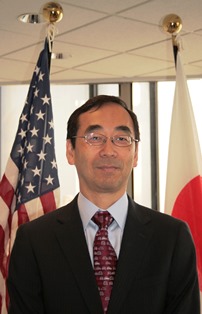
The Honorable Mitsuhiro Wada
Consul General of Japan in Detroit
Thursday, September 8, 2016
12:10-1:30pm
Room 1636 School of Social Work Building
Based on extensive knowledge acquired through his long diplomatic career and his year of service in the Michigan/Ohio region, Consul General of Japan in Detroit, Mitsuhiro Wada, will discuss the current state of U.S.-Japan relations. He will explain in depth the crucial importance of enhancing our relationship to maintain peace and prosperity in the Asia Pacific region while also discussing the significant impact the Trans Pacific Partnership (TPP) will have on the future of world affairs.
Mr. Wada began his career in the Ministry of Foreign Affairs of Japan in 1983. Within the Ministry in Tokyo, he has served as the Secretary-General for the 7th Pacific Islands Leaders Meeting, Deputy Director-General of the International Cooperation Bureau (ICB), Deputy Director-General of the Southeast and Southwest Asian Affairs Department, and Director of the Grant Aid & Technical Cooperation Division of the ICB. Overseas, Mr. Wada has held posts as the Deputy Chief of Mission and Minister at the Japanese Embassy in China, as a Counselor at the Embassy of Japan in Indonesia, and as a Counselor at the Permanent Mission of Japan in Geneva. Mr. Wada joined the Consulate-General of Japan in Detroit on August 24, 2015.
On Thursday, September 8, the first talk of the semester will be from the Consul-General of Japan, Mr. Mitsuhiro Wada. He’ll be speaking on: US-Japan Relations: An Important Partnership in a Changing Asia-Pacific Region.
I’m happy to give extra credit to any student who is able to attend the talk and write a reflection on it, as described here. The reflection essay is due by noon on September 15, uploaded to Canvas.

The Honorable Mitsuhiro Wada
Consul General of Japan in Detroit
Thursday, September 8, 2016
12:10-1:30pm
Room 1636 School of Social Work Building
Based on extensive knowledge acquired through his long diplomatic career and his year of service in the Michigan/Ohio region, Consul General of Japan in Detroit, Mitsuhiro Wada, will discuss the current state of U.S.-Japan relations. He will explain in depth the crucial importance of enhancing our relationship to maintain peace and prosperity in the Asia Pacific region while also discussing the significant impact the Trans Pacific Partnership (TPP) will have on the future of world affairs.
Mr. Wada began his career in the Ministry of Foreign Affairs of Japan in 1983. Within the Ministry in Tokyo, he has served as the Secretary-General for the 7th Pacific Islands Leaders Meeting, Deputy Director-General of the International Cooperation Bureau (ICB), Deputy Director-General of the Southeast and Southwest Asian Affairs Department, and Director of the Grant Aid & Technical Cooperation Division of the ICB. Overseas, Mr. Wada has held posts as the Deputy Chief of Mission and Minister at the Japanese Embassy in China, as a Counselor at the Embassy of Japan in Indonesia, and as a Counselor at the Permanent Mission of Japan in Geneva. Mr. Wada joined the Consulate-General of Japan in Detroit on August 24, 2015.
Ugly Fans?
08/13/16 11:06
On a similar topic...
Social justice, shipping, and ideology: when fandom becomes a crusade, things get ugly
Fans merely rooting for their favorite characters to get together has somehow evolved into ideological warfare.
by Aja Romano on August 7, 2016
What I take to be the article’s central point -
[...]
This was an extreme move, but it represented what at the time was the prevailing attitude of fans toward creators: Don’t let them see you. In essence, the first rule of fandom was, "Don’t talk about fandom."In recent years, social media and the mainstreaming of fandom has totally obliterated this attitude. That fan-shy celebrity who was startled 16 years ago by the banter of 300 women on a mailing list now has 5 million followers on Twitter. Fans who would have been terrified to let anyone see their fanwork decades ago now proudly send copies to creators. And many creators go out of their way to interact with fans on a regular basis.
But some fans feel that creators no longer hold all power in the fan-creator dynamic; hence, fan-creator interactions can get tense, and are often interlaced with conflict and harassment, sometimes from both sides. Within the past few months, multiple critics have described these conflicts as the result of a rise in fan entitlement across all walks of fandom life.
But where, say, regressive, male-dominated movements in fandom are fundamentally about gatekeeping geek culture, shipping-oriented movements are fundamentally motivated by investment in a specific set of characters (or, in the case of real-life ships, the "characters" of real people). Gatekeeping is about keeping real people out of the communities that surround stories we love; shipping-oriented movements are about getting more characters more attention within those stories. [...]
Full article is here.
Social justice, shipping, and ideology: when fandom becomes a crusade, things get ugly
Fans merely rooting for their favorite characters to get together has somehow evolved into ideological warfare.
by Aja Romano on August 7, 2016
What I take to be the article’s central point -
[...]
This was an extreme move, but it represented what at the time was the prevailing attitude of fans toward creators: Don’t let them see you. In essence, the first rule of fandom was, "Don’t talk about fandom."In recent years, social media and the mainstreaming of fandom has totally obliterated this attitude. That fan-shy celebrity who was startled 16 years ago by the banter of 300 women on a mailing list now has 5 million followers on Twitter. Fans who would have been terrified to let anyone see their fanwork decades ago now proudly send copies to creators. And many creators go out of their way to interact with fans on a regular basis.
But some fans feel that creators no longer hold all power in the fan-creator dynamic; hence, fan-creator interactions can get tense, and are often interlaced with conflict and harassment, sometimes from both sides. Within the past few months, multiple critics have described these conflicts as the result of a rise in fan entitlement across all walks of fandom life.
But where, say, regressive, male-dominated movements in fandom are fundamentally about gatekeeping geek culture, shipping-oriented movements are fundamentally motivated by investment in a specific set of characters (or, in the case of real-life ships, the "characters" of real people). Gatekeeping is about keeping real people out of the communities that surround stories we love; shipping-oriented movements are about getting more characters more attention within those stories. [...]
Full article is here.
Rabid Fans?
08/13/16 11:00
I’m not sure this is precisely about fantasy, but this New York Times article seems worthy of discussion. I’ve seen a couple article recently about “evil fans” taking fandom too far. I’m far from sure that’s actually what’s happening - not to be simple, but this could also be a story about racism and white supremacy under a slightly new guise - but it seems relevant to our class topics.
The Rise of the Internet Fan Bully
By AMANDA HESSAUG. 12, 2016

Normani Kordei, a member of the girl group on the rise Fifth Harmony, sat for a lighthearted Facebook Live interview earlier this month. Within a week, she had been chased off Twitter by a mob spewing racist insults.
“I’ve not just been cyber bullied, I’ve been racially cyber bullied with tweets and pictures so horrific and racially charged that I can’t subject myself any longer to the hate,” she wrote. Her account has been silent since.
Full article is here
The Rise of the Internet Fan Bully
By AMANDA HESSAUG. 12, 2016

Normani Kordei, a member of the girl group on the rise Fifth Harmony, sat for a lighthearted Facebook Live interview earlier this month. Within a week, she had been chased off Twitter by a mob spewing racist insults.
“I’ve not just been cyber bullied, I’ve been racially cyber bullied with tweets and pictures so horrific and racially charged that I can’t subject myself any longer to the hate,” she wrote. Her account has been silent since.
Full article is here
Fantasy Violence in Films
08/12/16 14:33
After Wes Craven died Fresh Air replayed some older interviews with him, which turn out to be meditations on the relationship between real and fantasy violence on screen. His argument is that most violence in films is quite fake, fantasy violence, and that provokes unhealthy responses in people. If you like horror films (he made Nightmare on Elm Street and the Scream movies), or if you like film more generally, I think this will be an interesting listen.
Here’s a clip of their conversation -
GROSS: The violence in "Last House On The Left," and the scenes of rape and mutilation and torture are so intense. I mean, I ended up walking out of the theater for that scene 'cause I just felt that I didn't want to have to remember it if I saw it. And I wonder if that's the challenge that you took on for yourself - to make something more graphic and more realistic than had ever been done before.
CRAVEN: It was. It was very specifically the philosophy of it. You know, I had a certain ambivalence towards doing this sort of genre. As I said, it was not something that I loved, but I was intrigued by the idea of presenting anything that was exceptionally truthful because I felt that most of the films that I'd seen that were made in America for popular audiences were distortions and, quite often, would present violence in a way that was either operatic or balletic or simply ellipted so that, you know, you would fade away before any true violence was done. Or the act of violence would be very simple and antiseptic. Someone would be shot, clutch his chest and fall down and die. A stab wound, you know, always killed with the first thrust.
And parallel to the process of filmmaking, in my own mind - in the minds of Sean too - were the mass of media inputs from the Vietnam War so that we were seeing reality of violence on our television sets, going into our theaters and seeing distorted, filtered reality. So Sean and I set off to say simply, let's not cut away and let's not do violence that is entertaining. And I didn't, you know, I simply did not cut away. And one stab did not do it and one shot did not do it. Once the violence began, the violence was treated absolutely really and thus the outrage. The audiences were, in a sense, tricked. They went in to a movie expecting to be entertained in the pure action or horror sense, where the blood is ketchup and the violence is simple and cartoonish. And instead we said, now that we've got you here, by the way, this is what violence is really like.
GROSS: What's the benefits of seeing that though?
CRAVEN: I think the benefits of seeing that is that it reaffirms reality rather than reaffirming a fantasy. Too much of American cinema dealt with reaffirming fantasies. It was a Disney-like approach to the entire spectrum of our reality. And at the same time, in the "real world," quote-quote - whatever the hell that is - we were seeing more and more of the veils stripped away, you know? The myth of American supremacy and infallibility. The myth of, you know, bombs dropped to win wars and you don't see the people that they hit. The reality that the American soldier was heroic in all cases and never did anything that was terribly disturbing. All those were being stripped away in the public forum, but in cinema it was still desperately trying to reaffirm the myths. And my feeling was, it's time to stop dreaming. And I guess that's become the theme of my entire work - it's time to wake up.
Here’s a clip of their conversation -
GROSS: The violence in "Last House On The Left," and the scenes of rape and mutilation and torture are so intense. I mean, I ended up walking out of the theater for that scene 'cause I just felt that I didn't want to have to remember it if I saw it. And I wonder if that's the challenge that you took on for yourself - to make something more graphic and more realistic than had ever been done before.
CRAVEN: It was. It was very specifically the philosophy of it. You know, I had a certain ambivalence towards doing this sort of genre. As I said, it was not something that I loved, but I was intrigued by the idea of presenting anything that was exceptionally truthful because I felt that most of the films that I'd seen that were made in America for popular audiences were distortions and, quite often, would present violence in a way that was either operatic or balletic or simply ellipted so that, you know, you would fade away before any true violence was done. Or the act of violence would be very simple and antiseptic. Someone would be shot, clutch his chest and fall down and die. A stab wound, you know, always killed with the first thrust.
And parallel to the process of filmmaking, in my own mind - in the minds of Sean too - were the mass of media inputs from the Vietnam War so that we were seeing reality of violence on our television sets, going into our theaters and seeing distorted, filtered reality. So Sean and I set off to say simply, let's not cut away and let's not do violence that is entertaining. And I didn't, you know, I simply did not cut away. And one stab did not do it and one shot did not do it. Once the violence began, the violence was treated absolutely really and thus the outrage. The audiences were, in a sense, tricked. They went in to a movie expecting to be entertained in the pure action or horror sense, where the blood is ketchup and the violence is simple and cartoonish. And instead we said, now that we've got you here, by the way, this is what violence is really like.
GROSS: What's the benefits of seeing that though?
CRAVEN: I think the benefits of seeing that is that it reaffirms reality rather than reaffirming a fantasy. Too much of American cinema dealt with reaffirming fantasies. It was a Disney-like approach to the entire spectrum of our reality. And at the same time, in the "real world," quote-quote - whatever the hell that is - we were seeing more and more of the veils stripped away, you know? The myth of American supremacy and infallibility. The myth of, you know, bombs dropped to win wars and you don't see the people that they hit. The reality that the American soldier was heroic in all cases and never did anything that was terribly disturbing. All those were being stripped away in the public forum, but in cinema it was still desperately trying to reaffirm the myths. And my feeling was, it's time to stop dreaming. And I guess that's become the theme of my entire work - it's time to wake up.
This is Your Brain on Screens
08/12/16 14:32

Despite my own use of technology in and out of the classroom, I have a strong restriction against students using laptops or tablets or phones in class. At the beginning of the semester, I want to explain my reasoning behind this policy.
I believe that it is incredibly hard not to multi-task when you are sitting in front of a screen, be it a TV or computer screen. And, although multi-tasking might feel good to some people at some moments, every piece of evidence I have ever read or experienced convinces me of the opposite. Multi-tasking hinders listening, thinking, engagement, and learning, all of which we are trying to maximize in the classroom.
For more on this topic, check out this article about the benefits of unplugging from technology and Nicholas Carr’s work on “how the Internet is making us stupid.” To be clear, I think technology is a wonderful thing and I have no problem with video games or blogs or cat videos, but only in the right context. I do not believe that having access to the internet’s firehose of information is good while you’re in a class session trying to think, listen, and share your ideas.
If you have a reason that you need to use a laptop or other device in class, please come and talk with me.
I also realize I might need to explain the title of this post -- do I? Does it make any sense to you? Like everyone in my generation, I grew up seeing this commercial on TV. I feel like “This is your brain on drugs” might be phrase that people in your generation would recognize, too, but maybe not? Here’s what I’m talking about --
